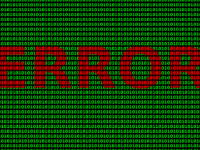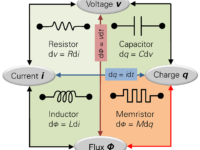Have you ever purchased something online? A T-shirt? A new pair of shoes? If so, you are among the majority of people with their credit card or bank account information stored privately online through encryption. As a result, you are also among a group of people who could be at risk of theft or fraud due to new advancements in quantum computers.
Right now, companies use encryption on their websites to safely protect and transmit your private information over the internet. To simplify the concept, encryption takes your information and garbles it into a long code that is a non-prime number and can only be broken if factored. The main goal of encryption is not to make it impossible for someone to access the information, but just hard enough that no one would want to attempt it. For instance, one long non-prime encryption number may take 2,000 years of computer processing time to break and factor into prime numbers. Therefore, a random individual using their laptop would not even be able to attempt to decrypt that code, but someone with a server farm of 24,000 computers, on the other hand, might only need a month to break that same encryption. This means that computer processing technically can be used for encryption, it just requires a lot of time — time that not a lot of people have or are willing to use. However, a new technology called quantum computing has been developed that might be able to crack our current encryption systems in a much more reasonable timeframe.
Researchers first discovered quantum computers in the 1990s, with MIT’s mathematician Peter Shor’s realization that quantum superposition could be applied to factoring integer numbers into primes. Quantum superposition is the idea that things on the atomic level can be in multiple states at once, like how a coin can be heads or tails at the same time. In quantum computing, the system uses something called quantum bits. A normal bit in a computer is either a “0” or a “1,” which is synonymous with it being either the heads or the tails of a coin. In comparison, a quantum bit can exist in a superposition of the two states: partly a “0” and partly a “1.” To try and simplify the idea, the states all run in parallel and in connection with each other in a very specific and algorithmic way that allows the system to test an infinite number of answers and detect the “correct answer.”
“Trust in the internet as a whole would be gone and everyone would scramble to regain their lost privacy.”
“While quantum computers right now may not have the ability to completely unravel our system of protecting online information, experts believe that the algorithms will most likely be able to eventually do so.”
Shor essentially came up with an algorithm that could break our current large-prime number encryption system called RSA. However the current prototypes available are very small and are not able to take on an intricate system such as RSA. More specifically, the largest currently existing quantum computer has 433 quantum bits, while a quantum computer that could break RSA would need at least 1 million quantum bits.
While quantum computers right now may not have the ability to completely unravel our system of protecting online information, experts believe that the algorithms will most likely be able to eventually do so. The effect of this could be utterly catastrophic. As Michele Mosca, a mathematician from the University of Waterloo, said, “We’d suddenly switch from managing the quantum-safe migration through technology lifecycle management to crisis management.” In other words, trust in the internet as a whole would be gone and everyone would scramble to regain their lost privacy.
Researchers are hoping to create systems that are less susceptible to quantum computing. Currently, the National Institute of Standards and Technology is working to discover systems that could resist quantum computers. They have made multiple prototypic algorithms based on lattice cryptography, a special quantum-resistant form of cryptography that is unfortunately costly and difficult to implement, but experts strongly urge countries to make the switch before it’s too late. The White House has already issued a memo urging all federal information to be protected by these new systems. Hopefully their new-found “quantum-safe” systems will be strong enough to hold off quantum computers, or the country’s most important information will be incredibly vulnerable online.
Image courtesy of Pixabay






